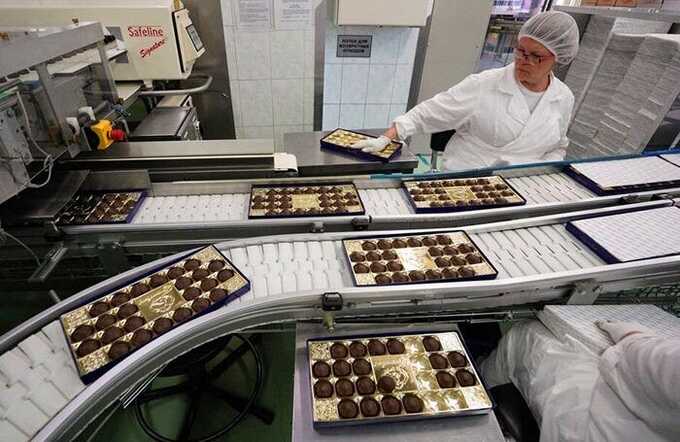Russian candy makers can't use certain chemicals and colors because of EU penalties.
EU restrictions might make it hard for Russian confectionery makers to produce sweets. The ingredients they use are now banned from being imported into the country, which might lead to a smaller variety of candies. The industry hopes to get the EU to remove these items from the banned list.
International candy manufacturers with facilities in Russia plan to request help from the European Food & Drinks Association to remove these chemicals and dyes from the EU sanctions lists. This is mentioned in a letter from the Askond Association of Confectionery Enterprises to its members. informs “Kommersant”.
The ingredients used in making sweets are now part of the fifth set of EU sanctions against Russia. Askonda points out that European officials believe these ingredients could have dual uses. Vyacheslav Lashmankin, executive director of Askonda, mentioned that emulsifiers are a big problem. They are used in making chocolate, pastries, halva, soft caramel, and wafer sheets. While a wide range of dyes is made in Russia, there are difficulties in replacing some of the imported ones, according to a source.
Alexey Popovichev, Executive Director of Rusbrand, mentioned that the issue is not seriously affecting candy production yet – there's enough stock of emulsifiers and dyes for a few months. But if importing these ingredients continues to be a problem, manufacturers might reduce the range of products. Lashmankin added that the right emulsifiers and colorants are crucial for the taste of the final product. Adapting candy recipes to use new ingredients is a time-consuming and expensive process.
The production of confectionery products is the only key food category that decreased in the first four months of this year – by 3.4%, to 1.2 million tons compared to the previous year. In May, the output of confectionery products decreased by 2% compared to April, according to Rosstat. Askonda's appeal notes that getting support from international manufacturers is crucial for starting the process of removing emulsifiers and dyes from the sanctions through the Food & Drinks Association.
Popovichev noted that seeking support from Food & Drinks could prompt a discussion. He mentioned that when the sanctions were imposed, it was stated that they shouldn't affect the food sector. For example, Mars previously had issues with supplying Orbit chewing gum, as its rubber base made of synthetic polymers was included in the list of banned goods for import into Russia.
Delcredere lawyer Karina Annenkova stated that companies can seek partial or temporary exemptions from the bans on certain grounds from the EU Department of Enterprise, Trade, and Employment, but “use in the food industry” isn't on their list. She added that EU provisions on sanctions are generally obligatory, and she believes the chances of confectioners getting permission are very low.




